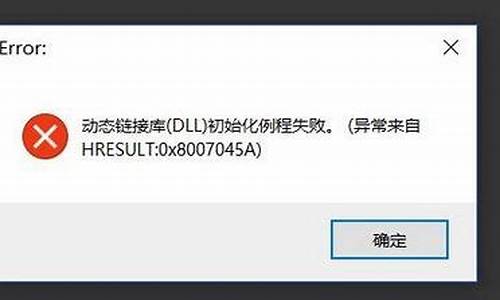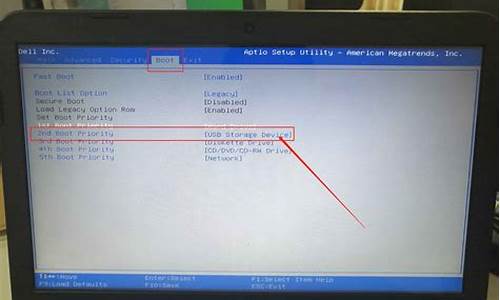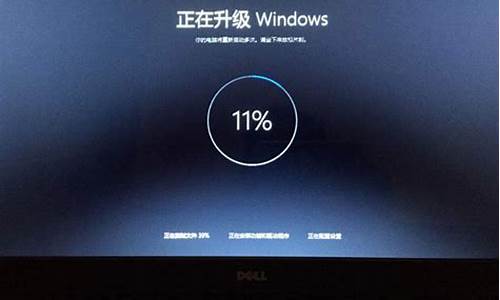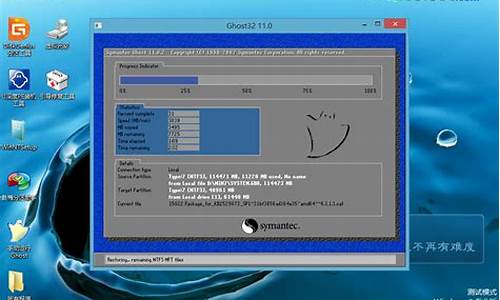电脑系统和手机系统的区别,电脑系统hesult

关于语音的几个概念
1) 字母:语言的书写形式。元音字母a, e, i(y), o, u,
2) 音标:词的语音形式。
3) 音素:音的最小的单位。英语中有48音素。
4) 音节:由元音和辅音构成的发音单位。ap'ple, stu'dent, tea'cher, un'der'stand
5) 元音:发音响亮,是乐音;口腔中气流不收阻碍;是构成音节的主要音。英语中有20元音。
6) 辅音:发音不响亮,是噪音;口腔中气流受到阻碍;不是构成音节的主要音。英语中有28辅音。
7) 开音节:a) 辅音+元音+辅音+e name bike home due; b) 辅音+元音 he, go, hi
8) 闭音节:a) 辅音+元音+辅音 bad, bed, sit, hot, cup; b)元音+辅音it
9) 重读音节:单词中发音特别响亮的音节。
2. 元音:(注意:下面空方括号是电脑无法输入的音标)
1) [i:] sea, he, see, piece, ceiling
2) [i] sit, build, miss, myth
3) [e] bed, desk, head,
4) [ ] bad, land, bank, stamp
5) [a:] car, fast, class, plant, calm, aunt
6) [ ] hot, want
7) [ ] door, more, sport, ball, warm, author, court, bought, caught
8) [u:] good, who, blue, soup,
9) [u] look, put, women, could
10) [ ] cup, come, blood, rough
11) [ ] girl, work, serve, nurse
12) [ ] cadre, ago, forget, polite, dollar, doctor, famous, Saturday
13) [ei] cake, they, play, eight, great,
14) [ai] bike, die, neither, light, try, find, height, eye
15) [ ] phone, cold, boat, soul, grow
16) [au] house, town
17) [ ] boy, oil
18) [ ] dear, idea, deer, here, fierce,
19) [ ] pear, care, there, fair
20) [ ] tour, poor,
3. 容易混淆的元音
1) [e] [] bed bad; men, man; pen, pan; lend land
2) [i:] [ei] real rail; greet, great; mean, main; read raid
3) [e] [AI] bet bite; red write; said side, head, hide
4) [au] [ ] house horse; loud lord; south sauce; now nor; count corn; cloud clause
5) [au] [ ] found fond; gown gone; down don
4. 辅音
1) [p] pen,
2) [b] bed, comb
3) [t] tell,
4) [d], day, played, wanted
5) [k] cold, sky, quick, school, back, accept, box
6) [g] big, go, guess, language
7) [m] man
8) [n] nine, knife, autumn
9) [ ] bank, uncle, English, sing,
10) [l] land, world
11) [r] read, write,
12) [f] five, cough, laugh
13) [v] voice, of
14) [ ] think,
15) [ ] this, bathe
16) [s] sit, miss, science, case, scarf
17) [z] zoo, close,
18) [ ] sure, she, social, nation
19) [ ] pleasure,
20) [h] hot, who, hour
21) [w] wall, what, answer
22) [j] yes
23) [ ] child, teach, catch
24) [ ] joke, bridge,
25) [ts] boats
26) [dz] goods
27) [tr] tree
28) [dr] dream
5. 容易混淆的辅音
1) [v] [w] vet wet; vest west; vine wine; very well
2) [s] [ ] sink think; sort thought; miss myth; mass math
3) [z] [ ] closing clothing; breeze breathe; bays bathes
4) [n] [ ] thin thing; sin sing; ban bang win wing; ran rang
6. 读音规则
1) 重读音节(见元音和辅音的例句)
2) 非重读音节 [ ] banana, student, today, after, [i] orange, secret, evening, very, Monday
7. 特殊读音
1)音的连读:前面的词以元辅音结尾,后面的单词以元音开头,这样结尾的辅音要和开头的元音连读。例如:not at all, half an hour, I love you and all. after all
2)失去爆破:辅音爆破音或摩擦音后面跟的是爆破音、破擦音和摩擦等,前面的辅音要失去爆破。例如:good girl, good student, good job, expression, school, extreme
3)音的同化:两个特殊的音碰到一起,会发出变异成特殊的音。例如:Would you do it? I am glad to meet you. Can't you see it? last year, this year,
8. 重音
1)单词重音
A)双音节词
a)一般在第一个音节重读。letter, sorry
b)有 a-, be-, de-, re-, res-, in-, im-, en-, em-, es-, ex-, con-, com-, dis-, mis-, pre-, per-, pro-, trans- 等前缀的词,第二个音节是重音。a'bout, be'lieve, ad'dress, de'cide, re'port, con'demn, res'pect, com'pare, in'form, dis'cuss, im'press, mis'take, en'force, pre'pare, em'ploy, per'mit, es'cape, pro'duce, ex'claim,trans'late
c)有 de-, in-, re-, con-, pre- 等前缀的重音与词义和词类有关, 一般名词的重音在第一个音节上,其它的词性在第二个音节上。'record, re'cord; 'insult, in'sult; 'conduct, con'duct; 'present pre'sent; 'content, con'tent
d)有些复合词和带有前缀 re-, ex-, un-, pre-, post-, 等的词,有两个重音。'out'side, 're'tell, 'well-'known, 'un'real, 'fif'teen, 'Chi'nese, 'pre-'war, 'post-'war
B)多音节词
a)一般倒数第三个音节是重音。'difficult, 'communist, 'family, e'conomy, oppor'tunity,de'mocracy.
b)有一些双音节词,加了前缀和后缀成了多音节,但这些词按原来词根的重音读音。'carefully, in'definite, 'comfortable, con'ductor, ac'cording, dis'turbance, 'complicated,es'tablishment,
c)词尾有-eous, -grahpy, -ial, -ian, -ic, -ics, -ience, ient, -ify, -ion, -ious, -ity, ive 后缀的词,重音在这些后缀的前一个音节上。cour'teous, cal'ligraphy, edi'torial, his'torian, peri'odic, mathe'matics, ex'perience,suf'ficient, i'dentify, trans'lation, re'ligious, curi'osity, pro'tective
d)词尾有 -ain, -ee, -eer, -ese, -ette 后缀的词,重音在该后缀上,而且有一个次重音。enter'tain, emplo'yee, mountai'neer, Japa'nese, ciga'rette
2)句子重音
A) 英语的节奏:(轻)-轻-重-轻-(轻)或重-轻-(轻)(轻)重
B) 英语句子的长短:是由句子中的重读词的数目决定的,而不是象汉语那样由句子中的汉字数目决定的。
C) 实词重读(副词重读),虚词轻读(冠词,单音节介词,单音节连词,人称代词,反代词,物主代词,关系代词,相互代词,助动词,情态动词和系动词be
D) 实词不重读的特殊情况
a) 实词第二次出现 He thinks of that as a child thinks.
b) 一个名词被第二个名词修饰 I met her in the railway station.
c) 代替词 Which book do you want? The small one.
d) 感叹词中的 what 和how What a good day it is! How beautiful she is!
e) street 在专有名词中 Wangfujing Street.
f)this在这些短语中,this morning/afternoon/evening
E)虚词重读的特殊情况
a) 情态动词,助动词和系动词be在句首,句尾和否定时。Do you like it? Yes, I do. Are you a doctor? Yes, I am. Can you help me? Yes, I can. I don't like you. He isn't a worker.
b) 情态动词表示可能,惊奇和肯定时。They may come this evening. Can it be five already? He must be in the room.
c) 介词在句首和句尾。In the box, he found a letter. He is the person I talked with.
d) 引导复合句的连词在句首。If you wish, I'll visit you. When he comes, I'll tell him.
e)反身代词表示强调。He couldn't come himself.
饥饿的毛毛虫The very hungry caterpillarIn the light of the moon,a little egg lay on a leaf.月光下,一颗小小的卵,躺在叶子上睡觉。
One sunday morning,the warm sun came up and POP!-out of the egg,came a tinyand very hungry caterpillar. He started to look for some food.
在一个周表的星晨:暖洋洋的太阳升起来啦.从那只白白的卵壳史爬出一条又瘦又饿的毛毛虫:它好饿好饿:于是它开始到处寻找食物啦!
0n Monday,he ate through one apple,but he was still hungry.
周一的时候,他吃掉了一个苹果,但是还是觉得饿。
on Tuesday,he ate through two pears,but he was still hungry
.周二的时候,他啃掉了两个梨子,但还是觉得饿。
o0n Wednesday,he ate through three plums,but he was still hungry.周三的时候,他吃掉了三个李子,但还是没吃饱呢。
0n Thursday,he ate through four strawberries, but he was stil1 hungry.周四的时候,他吞进了四个草莓,但是还是没吃饱。
0n Friday,he ate through five oranges, but he was sti11 hungry.周五的时候,他吃掉了五个桔子,但是还是觉得好饿好饿。
0n Saturday,he ate through one piece of chocolate cake,one ice-cream cone,one pickle,one slice of swiss cheese,one slice of salami,one lollipop,onepiece of cheery pie, one sausage,one cupcake,and one slice of watermelon.
周六的时候,他连连吞进了一块巧克力蛋糕,一个冰淇淋蛋筒,一条腌黄瓜,一块瑞士奶酪,一根意大利腊肠,一个棒棒糖,一块樱桃馅饼,一根红肠,一只杯型蛋糕,还有一块甜西瓜。
That night he had a stomachache !
当天晚上,他就觉得肚子好痛。
The next day was Sunday again. The caterpillar ate through one nice green leaf,and after that he felt much better.
第二天,又是星期天了。毛毛虫吃了一片可爱的绿色树叶,这一次它感觉肚子舒服多了。
Now he wasn't hungry any more—-and he wasn't a little caterpillar any more.He was a big , fat caterpillar.
现在啊,毛毛虫再也不饿了-它再也不是一条小毛毛虫了。它是一条胖嘟嘟的大虫子了。
He built a small house , called a cocoon,around himself. He stayed inside formore than two weeks. Then he nibbled a hole in the cocoon,pushed his way outand ……he was a beautiful butterfly.
它绕着自己的身体,造了一座叫做“茧”的小房子。它足足在里面待了两个多星期。然后,它破蚕而出,变成一只漂亮的蝴蝶啦!
声明:本站所有文章资源内容,如无特殊说明或标注,均为采集网络资源。如若本站内容侵犯了原著者的合法权益,可联系本站删除。












